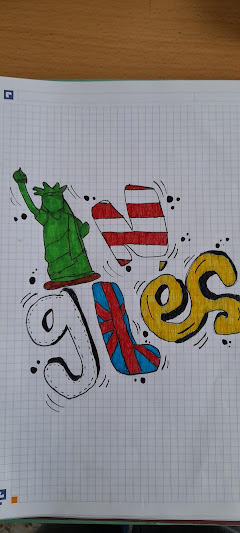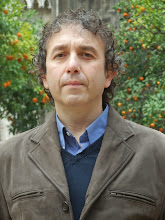Reported speech is used when written or spoken words are repeated by someone else. (It is normally employed in conversation and newspapers). When Direct Speech is changed into Reported Speech a certain number of changes are necessary but, when the introducing verb is in the Present Perfect or Future tense, the verbs in Reported Speech do not change their tense.
Reported Speech is not put in inverted commas, and a colon or comma is not placed after the introducing verb.
The structure of a reported sentence would be as follows
Subject + Introducing Verb + Nexus + REPORTED SENTENCE
(Always in the PAST) (Void / That / If / Whether / Wh-?)
Changes when the Introducing Verb is in the PAST tense:
1) TENSE:
DIRECT SPEECH
REPORTED SPEECH
Present Simple
Past Simple
She said: 'It is five o'clock'
She said that it was five o'clock
Present Simple Continuous
Past Simple Continuous
He said: 'I'm washing my car'
He said that he was washing his car
Present Perfect / Past Simple
Past Perfect Simple
He told his wife: 'I've cleaned the window and washed the floor'
He told his wife that he had cleaned the window and had washed the floor
Present Perfect Continuous/ Past Continuous
Past Perfect Continuous
They stated: 'we have been studying so we were improving'
They stated that they had been studying so they had been improving
Future Simple (Will / Shall)
Conditional Simple (Would)
She suggested: 'I'll see you tomorrow'
She suggested that she would see him the following day
Future Simple Continuous
Conditional Simple Continuous
They thought: 'it will be raining tomorrow'
They thought that it would be raining the next day
Future Simple (Going to) ------- It is considered a Present Simple Continuous
He commented: 'I'm going to use my car'
He commented that he was going to use his car
2) PRONOUNS and POSSESSIVE ADJECTIVES:
DIRECT SPEECH
REPORTED SPEECH
FIRST person
THIRD person
The worker said: 'I can't build the house'
The worker said that he couldn't build the house
* If the worker were reporting his own words pronouns and possessive adjectives wouldn't change: I said that I couldn't build the house
SECOND person
FIRST (Singular / Plural) or THIRD person
The director said: 'You are right'
The director told me I was right
The director told us we were right
The director told them they were right
3) WORDS and PHRASES (often adverbials related to time or place):
DIRECT SPEECH
REPORTED SPEECH
TIME
Today
That day / The same day
Yesterday
The day before / The previous day / The last day
Last day, week, month …
The day, week, month …. before
The previous / last day, week, month…
The day before yesterday
Two days before
Tomorrow
The day after / The following day / The next day
Next day, week, month …
The day, week, month …. after
The following / next day, week, month…
The day after tomorrow
In two days' time
Ago
Before / Previous / Previously
PLACE
This / These (determiners)
That / Those (THE)
This / These (pronouns)
It / Them
Here
There / In that place
* Verbs which do NOT change in Reported Speech:
DIRECT SPEECH
REPORTED SPEECH
Improbable Conditional (TYPE 2):He said: 'If I had more money, I would produce more'
He said that if he had more money he would produce more
Verbs always in the past tense (the imagined form after WISH, WOULD RATHER, AS IF, AS THOUGH, IT'S TIME… :He told her: 'I wish the radios were better'
He told her that he wished the radios were better
SHOULD, OUGHT TO, HAD BETTER, MIGHT, USED TO, COULD, MUST (Except when signifying obligation, that is, when Will / Would HAVE TO or HAD TO can be used):He thought: 'The weather might be fine later'
He thought that the weather might be fine later
* If CAN (Ability) or MUST (Obligation) are employed, they change in the Reported Speech into COULD and HAD TO
* QUESTIONS in Reported Speech:
DIRECT SPEECH
REPORTED SPEECH
Beginning with Interrogative Pronouns (Question Words) WHO, WHAT, WHERE, WHY, WHEN… :The reported question is written as a statement and the subject is placed before the verb; no question mark is necessary. When the verb To BE is used, it is placed at the end of the sentence in Reported Speech:
'Where does she live?', he asked
He asked where she lived
'When is the match next week?', she asked
She asked when the match the following week was
Beginning with AUXILIARIES or INTERROGATIVE FORMS of the verbs:The reported question is written as a statement, the subject is placed before the verb and IF or WHETHER is placed after the introducing verb; no question mark is necessary:
'Does she live in London?', he wondered
He wondered if / whether she lived in London
'Can I use a pencil?', asked the student
The student asked if / whether he could use a pencil
* Other verbs of reporting questions are: ASK, WONDER, INQUIRE, DEMAND, WANT TO KNOW, QUESTION…
* COMMANDS in Reported Speech:
DIRECT SPEECH
REPORTED SPEECH
The Imperative of the Direct command is changed into the INFINITIVE in a Reported Command, the person addressed must be included after the introducing verb, and verbs of Command or Request have to be used as introducing verbs (TELL, COMMAND, BEG, ORDER, REMIND, WARN, RECOMMEND, ADVISE…). No exclamation mark is necessary.
'Sit down and keep quiet', the director said
The director ordered us to sit down and be quiet
If a negative command is given, in the Reported Speech it is represented by NOT + INFINITIVE.
The teacher told us: 'Don't forget your homework'
The teacher warned us not to forget our homework
* EXCLAMATIONS in Reported Speech:DIRECT SPEECH
REPORTED SPEECHExclamations are change into STATEMENTS in the Reported Speech. No exclamation mark is necessary, but we need special introducing verbs to report the sense.
'What a lovely day!' she said
She exclaimed (that) it was a lovely day
* Many exclamations are left out in reported Speech, what is important is to report the sense:
'Oh dear, I'm broke', said the banker
Sighing and crying the banker remarked (that) he was broke
* SUGGESTIONS in Reported Speech:
DIRECT SPEECH REPORTED
SPEECH
Suggestions are change into STATEMENTS in the
Reported Speech. We need special introducing verbs to report the sense like
SUGGEST and RECOMMEND (or less frequently ADVISE and INVITE). They present two
different forms:
Using THAT
+ Subject + Base:
'Let's watch the new film': Sarah suggestedSarah suggested that we watch the film
'You should go to the doctor's, Peter': Sarah
suggested
Sarah suggested that Peter go to the doctor's.
Using
PRESENT PARTICIPLE + NO Subject:
'Turn left at the next intersection': John
recommendedJohn recommended turning left at the next intersection


